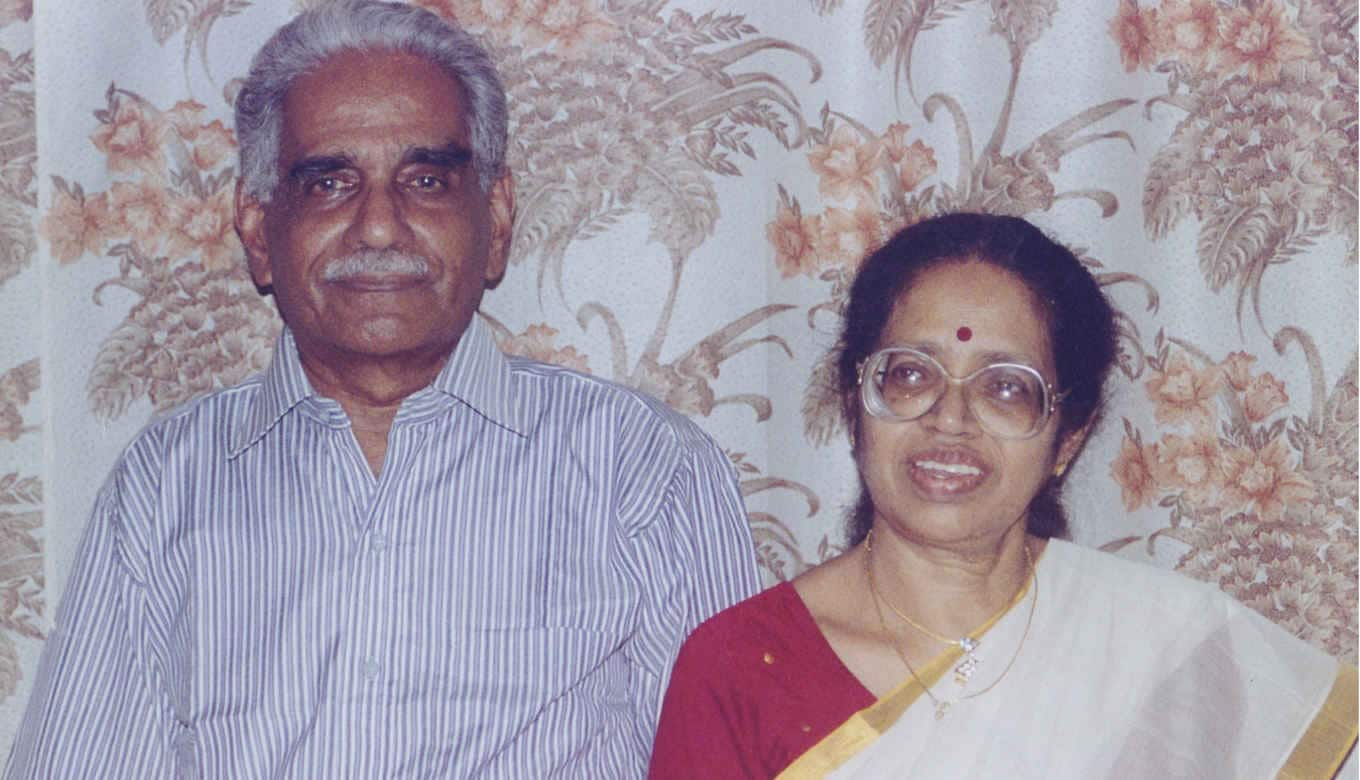
When I decided to search for some information on Kyrgyz author Chingiz Aitmatov on LiveLib.ru, a Russian social network dedicated exclusively to literature, the last thing I expected to find was a reference to Vayalamma, a book that I had obviously not read. The book is a Malayalam translation of Mother Earth, a 1963 book written in Russian by the Kyrgyz author, who passed away in 2008. This 'discovery' filled me with excitement and opened a Pandora’s box.
The translation was the painstaking effort of Ettumanoor-born Omana, who along with her Alwaye-native husband Moscow Gopalakrishnan (K. Gopalakrishnan Nayar) were responsible for more than 190 works of Russian literature being translated into Malayalam. As someone who has been associated with Russia since 2003, coming across the profile of this couple sent a bolt of excitement down me.
There is plenty of information online in English about this couple. They were employees of the Soviet Information Centre (now the Russian Centre of Science and Culture) in Delhi. Moscow Gopalakrishnan, a member of the Communist Party of India in the 1950s, eventually became the joint editor of the Soviet Review, which was published by the Soviet Information Department.
Moscow’s Kerala outreach
In the mid-1960s, the Soviet government decided to translate the works of great Russian authors in Malayalam, and Progress Publishers (the same publishing house that sold the works of Leo Tolstoy and Fyodor Dostoyevskiy in India for peanuts in the heyday of the USSR) invited the couple to handle this task.
What was supposed to be a two-year stint, turned into a quarter of a century that commenced in the Brezhnev-era and ended with the downfall of the USSR. Starting from my mother’s generation, Kerala was enthralled by the beautiful children’s books (full of colourful illustrations) and the translations of Maxim Gorky, Alexander Pushkin and a host of greats.
In interviews to the Indian press, Moscow Gopalakrishnan would talk about how the couple initially translated Russian books from English to Malayalam and then went to learn Russian and did direct translations. They hired a local tutor to master the language that has a literature, which is above the comprehensive reach of someone who has decent conversational skills (I say this as someone who still puts in a tremendous amount of effort to improve my Russian).
In an interview given to a national daily, Gopalakrishnan spoke of how Omana (who passed away in 2003) managed to translate Anna Karenina into Malayalam, but rued the fact that the book did not get published as Progress Publishers and its Raduga Division collapsed with the Soviet Union, and the manuscript was lost forever.
Malayalis of my mother’s generation fondly talk about the beautifully illustrated books and fairy tales. The there’s the delightful Facebook community Aa Pazhaya Russian Pusthakangal (Those Old Russian Books), set up by Sajid A Latheef from Nilambur, which is digitizing and preserving the books that Omana and Gopalakrishnan translated into Malayalam.
Gopalakrishnan continued to receive a pension from the Russian government until his death in 2011.
Story behind the story
While I feel a great degree of respect and admiration for the late Omana and Gopalkrishnan, there’s also regret about not being able to meet them when they were alive to know the story behind the story.
Imagine a Malayali couple with two children leaving for Soviet Moscow in 1966, with very basic knowledge of Russian. Moscow of the 60s is not the open, sparkling and comfortable city that football fans visiting Russia for the World Cup are seeing now. Yes, the metro was as stunning as ever, the old monuments were maintained and safety was not an issue in the USSR. But today’s Russia is nothing like the Soviet Union. In those days, people were neither encouraged to interact with a miniscule foreign community, nor learn foreign languages. Sure, there were specialists of every language and those that did interact with foreigners, but the USSR was obsessed with secrecy and security.
Despite a suspicious government, Soviet citizens did like to interact with foreigners who they could communicate with. Indians, at that time, did enjoy a special status. Those were the days when Raj Kapoor was a legend, and dubbed Hindi films were so much in demand that there was a black market for tickets at cinema halls.
However, foreigners living in the USSR, without exception, had city-specific visas and were not allowed to travel beyond a particular radius of where they were registered without official permission. So, even a train ride to Leningrad or Kiev from Moscow warranted special permission from the authorities.
Based on many a conversation, I can say that many Indians and other foreigners who lived in the USSR in those days look back fondly at their time. Few eminent people lived for as long and created as much of a lasting impact as Omana and Gopalakrishnan. We’ll never get a deep first-hand account of their first winter, their relationship with the common man and how they saw Moscow change from the days when Leonid Brezhnev was at the helm and a ride on the metro cost a few kopecks (100 kopecks = 1 rouble) to the Mikhail Gorbachev era and the end of the USSR.
Interest in India was high at that time Omana and Gopalakrishnan lived in Moscow. Crowds waited on the streets to get a glimpse of Indira Gandhi, and Soviet scholars even managed to bring about a Malayalam-Russian dictionary that I am sure that the great couple used.
Internet accounts suggest that their son Sashi still lives in Moscow. He would be the right person to get in touch with to get more glimpses into the life of his path-breaking parents.
Meanwhile, we can enjoy the monsoons with a nice Malayalam reading of Dostoyevsky’s White Nights and Maxim Gorky’s The Mother, thanks to the tireless efforts of Omana and Moscow Gopalakrishnan.
(Ajay Kamalakaran is the author of Globetrotting for Love and Other Stories from Sakhalin Island)

